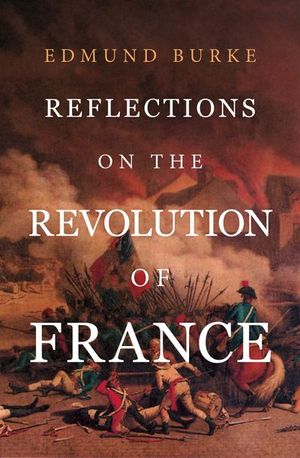Reflections on the Revolution in France
Published by Open Road Media
The eighteenth-century Anglo-Irish MP and philosopher offers his opinion on the early days of the French Revolution and his expectations of its outcome.
The French Revolution began in 1789. In the following year, Edmund Burke, a member of Great Britain’s House of Commons, wrote one of the most famous arguments against the rebellion. The work started off as a letter to a friend of Burke’s family who had asked for his opinion on whether France’s new ruling class would succeed in establishing a better order. In Reflections on the Revolution in France, Burke presents his reply on a much larger scale. He offers “a dire warning of the consequences that would follow the mismanagement of change.” He contends the French Revolution would fail due to its foundation being constructed upon individualism and ignoring human nature and society. With thoroughness, rhetorical skill, and literary power, Burke ultimately makes his case for monarchy, aristocracy, private property, the order of succession, and wisdom. A founding philosophical work of the conservative movement, Reflections was a favorite of Britain’s King George III.BUY NOW FROM
COMMUNITY REVIEWS

